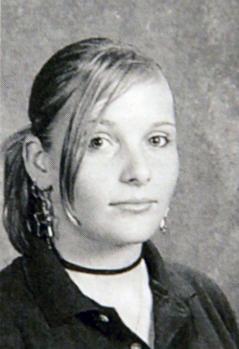|
|
|---|
Wednesday, June 30, 2010
David Bleak was born in Idaho Falls, Idaho, on Feb. 27, 1932. He was raised on a farm north of the city. David was more than 6 feet tall and weighed 250 pounds when he quit high school to work in
ranching and railroad jobs. In 1950, he joined the military.
He took his basic training at Fort Riley, Kansas, the famous old horse cavalry post. Before long he was assigned to a Medical Company that became part of the 2nd Battalion, 223 infantry Regiment of California’s 40th Infantry Division. He then received more advanced specialized medical aid training Camp Cook in California.
After several months Bleak was made Corporal, and as January 1952 dawned, the 40th Division was on its way to ‘the Korean Conflict via Japan. Somewhere north of the 38th parallel. Before long, Corporal Bleak was promoted to Sergeant filling the shoes of another NCO aid man who had recently been killed.
The 40th Division assignment was largely a holding action near the 38th parallel. It was mountain country where the trees had been cut down and used to reinforce entrenched enemy positions in the area. The only cover was a scattering of brush three of four feet high and the rugged contour of the land itself. In. this holding action both side set up fields of fire, logged in. artillery concentrations and then probed from time to time to see if the enemy was planning any surprises.
The I & R Platoon (Intelligence and Reconnaissance) of the 2nd Battalion drew the mission to go into enemy territory, capture a couple of North Koreans and/or Chinese and bring them out for interrogation.
One of the most common missions performed by United Nations infantrymen was the small raid for the purpose of capturing enemy prisoners for interrogation. These operations were usually launched at night and were extremely dangerous-indeed, relatively few succeeded in capturing any prisoners. At this level, the war was a very personal affair - it was man against man, rifle against grenade, fist against knife. Small unit fights required a great deal of courage, and sometimes the bravest men were those who did not carry a rifle at all - the medics. One such man was Sgt. David B. Bleak, a medical aidman attached to the 40th Infantry Division's 223d Infantry.
On 14 June 1952, Sergeant Bleak volunteered to accompany a patrol that was going out to capture enemy prisoners from a neighboring hill. As the patrol approached its objective the enemy detected it and laid down an intense stream of automatic weapons and small-arms fire. After attending to several soldiers cut down in the initial barrage, Sergeant Bleak resumed advancing up the hill with the rest of the patrol. As he neared the crest, he came under fire from a small group of entrenched enemy soldiers. Without hesitation, he leapt into the trench and charged his assailants, killing two with his bare hands and a third with his trench knife.
As he emerged from the emplacement, he saw a concussion grenade fall in front of a comrade and used his body to shield the man from the blast. He then proceeded to administer to the wounded, even after being struck by an enemy bullet. When the order came to pull back, Sergeant Bleak ignored his wound and picked up an incapacitated companion. As he moved down the hill with his heavy burden, two enemy soldiers bore down on him with fixed bayonets.
The soldiers rushed him, thrusting their bayonets at his chest. Sgt. Bleak sidestepped their lunges, grabbed his two assailants and smacked their heads together before resuming his way back down the mountain carrying his wounded comrade.
During its tour in Korea, the 40th division soldiers received many thousands of awards and decorations. The three soldiers awarded the Medal of Honor were Sergeant David B. Bleak, Medical Company 223rd Infantry; Corporal Gilbert G. Collier, Company F, 223rd Infantry (posthumous award); and Corporal Clifton T. Speicher, Company F, 223rd Infantry (posthumous award).
Sergeant Bleak's actions were so distinctive that June day that they won him one of the 131 Medals of Honor awarded during the Korean War. Yet a day did not go by in which some American soldier did not risk his life for his comrades on some nameless Korean hillside. This was particularly true for those soldiers assigned to the outpost line-a string of strongpoints several thousand yards to the front of the UN's main battle positions. The typical outpost consisted of a number of bunkers and interconnecting trenches ringed with barbed wire and mines perched precariously on the top of a barren, rocky hill. As the UN's most forward positions, the outposts acted as patrol bases and early warning stations. They also served as fortified outworks that controlled key terrain features overlooking UN lines. As such, they represented the UN's first line of defense and were accorded great importance by UN and Communist commanders alike. Not surprisingly, the outposts were the scenes of some of the most vicious fighting of the war. While most of these actions were on a small scale, some of the biggest battles of 1952 revolved around efforts either to establish, defend, or retake these outposts.
On 27 October 1953, with his family proudly looking on, Set. David B. Bleak received the Medal of Honor from President Dwight D, Eisenhower at the White House. His other decorations included the Purple Heart.
Rank and Organization:
Sergeant Medical Company, 2d Battalion, 223d Infantry Regiment, 40th Infantry Division:
Service: U.S. Army
Born: 27 February 1932, Idaho Falls, Bonneville County, Idaho.
Entered Service: Shelley, Bingham County, Idaho.
Served as: Medical Aid man.
Battle and Date of Action: Minarigol, Korea, 14 June 1952.
Citation:
Sgt. Bleak, a member of the medical company, distinguished himself conspicuous gallantry ;and indomitable courage above and beyond the call of duty: in action against the enemy. As a Medical Aidman, volunteered to accompany a reconnaissance patrol committed to engage the enemy and capture a prisoner for interrogation. Forging up the rugged Slope of the key .terrain, the group was subjected to intense automatic weapons and’ small arms fire and suffered several casualties. After administering to the wounded he, continued to advance with the patrol. Nearing the military crest of the hill, while attempting to cross the fire swept area to attend the wounded, he came under hostile fire from a small group of the enemy concealed in a trench. Entering the trench he closed with the enemy, killed two with bare hands and a third with his trench knife. Moving from the emplacement, he saw a concussion grenade fall in front of a companion, and, quickly sifting his position, shielded the man from the impact of the blast. Later, while ministering to the wounded, he
was struck by a hostile bullet but, despite the wound he undertook to evacuate a wounded comrade. As he moved down the hill with his heavy burden, he was attacked by two enemy soldiers with fixed. bayonets. Closing with the aggressors, he grabbed !hem and smacked their heads together, then carried his helpless comrade down the hill to safety.
Sgt. Bleak’s dauntless courage and intrepid actions reflect utmost credit upon himself and are in keeping with the honored traditions of the military service.
After his military service, Mr. Bleak kept mum about his combat record and turned down jobs offered to him by those wanting to do a favor for a war hero. He lived in Wyoming and worked variously as a rancher, grocery store meat cutter and truck driver.
Starting in the mid-1970s, Mr. Bleak spent a decade as a dairy farmer in Moore, Idaho. He became a janitor at the Idaho National Engineering Laboratory, a nuclear research test facility. He retired in the mid-1990s as chief hot-cell technician, helping store and dispose of fuel rods.
Major General John A. Dubia, Commanding General of Fort Sill, Oklahoma bestowed another honor. Gen. Dubia owes his life to a combat Medic in Viet Nam and to express his gratitude decided to flame the lat. Sill Troop Clinic in honor of a combat medic. Special permission was obtained; April 20, 1995 was designated as Sgt. David B. Bleak day; and the new medical facility at Ft. Sill was named the Sgt. David B. Bleak Troop Medical Clinic.
David at the Dedication of "The David B. Bleak Park" - 2005
David B. Bleak, an Army medical aidman during the Korean War , died March 23, 2006 at Lost Rivers District Hospital in Arco, Idaho. He had emphysema, Parkinson's disease and complications from a broken hip. He was 74 years old.
Survivors include his wife of 45 years, Lois Pickett Bleak of Arco; four children, Charles Bleak of Cove, Oregon., Barbara Martin of Phoenix, Arizona, Christopher Bleak of Prescott, Arizona, and Bruce Bleak of Moore, Idaho; nine grandchildren; and six great-grandchildren.
0 Comments:
Subscribe to:
Post Comments (Atom)





















